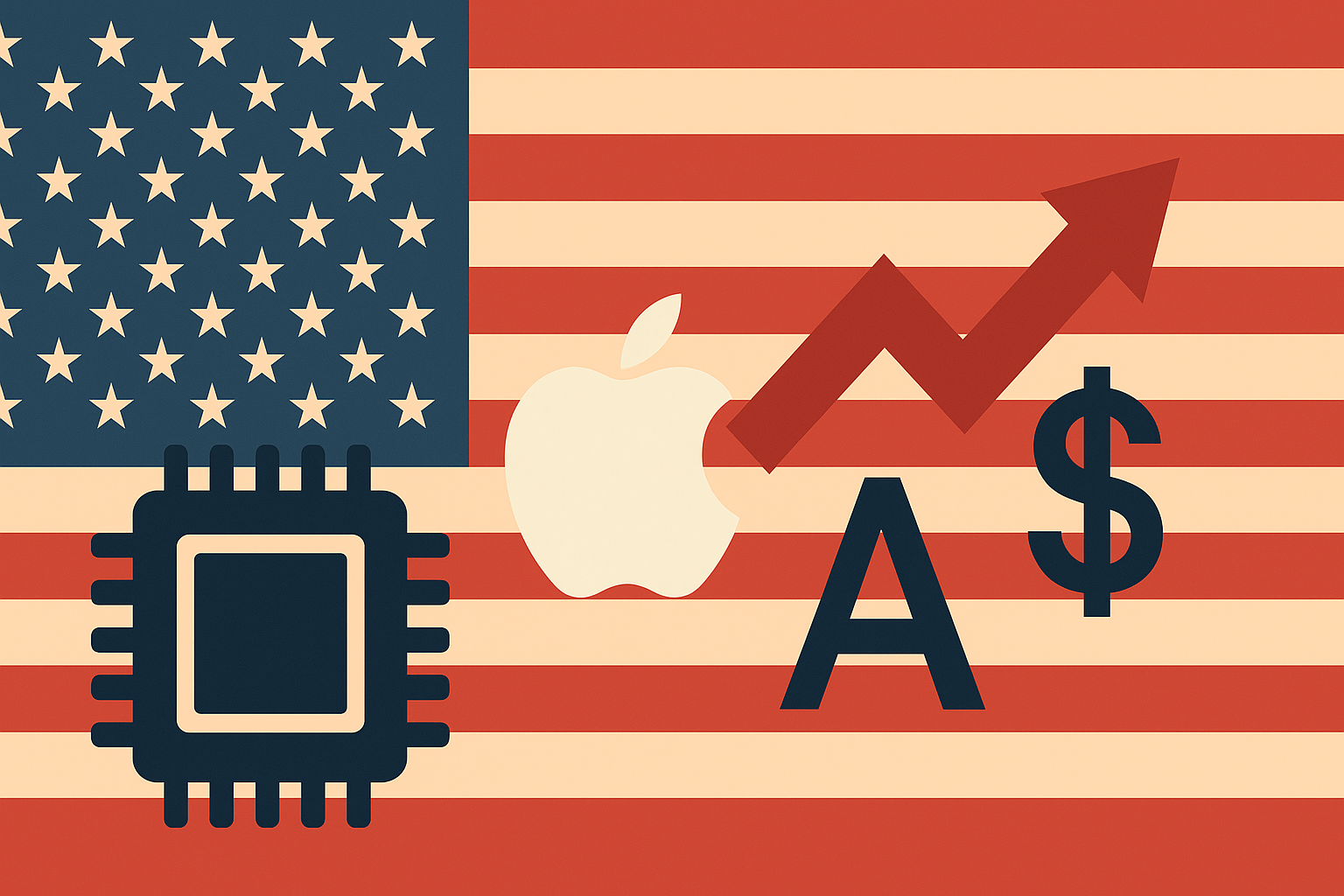President Donald Trump has announced plans to impose a 100% tariff on all imported semiconductors, a move aimed at bolstering domestic chip production. However, he offered a significant carve-out: companies that invest in U.S. manufacturing—such as Apple, Nvidia, and Taiwan Semiconductor Manufacturing Company (TSMC)—would be exempt from the new tariffs.
The announcement came during a White House meeting on Wednesday, August 6, with Apple CEO Tim Cook, who pledged to increase Apple’s U.S. investment by $100 billion, bringing the tech giant’s total committed U.S. spending to $600 billion over four years. Trump praised Cook, calling him “one of the great and most esteemed business leaders and innovators anywhere in the world.”
Targeting Chip Imports While Rewarding Domestic Production
Trump outlined that the 100% tariff would apply broadly to chips and semiconductors, but explicitly stated that “if you are building in the United States of America, there’s no charge.” This would benefit companies like Apple, which has already announced plans to partner with domestic firms such as Corning, Applied Materials, Broadcom, and Texas Instruments.
The move is part of a broader push under Trump’s second-term economic strategy to “reshore” production of critical components for national security and economic competitiveness. A White House official clarified that exemptions would not be limited to Apple but extended to other companies that demonstrate substantial domestic investment.
Nvidia and TSMC Also In Line for Relief
Nvidia CEO Jensen Huang also met with Trump on Wednesday, signaling the administration’s openness to support additional tech leaders who increase U.S.-based chip manufacturing. TSMC and GlobalWafers—key players in AI and advanced chip production—have already pledged to invest billions in expanding their American operations.
Section 232 Tariff Regime Looms
The chip tariff announcement came just ahead of Trump’s new “reciprocal tariff” regime, scheduled to take effect Thursday, targeting imports from the EU, Japan, and other trading partners. The administration is also awaiting the results of a Section 232 investigation into global trade in chips and related products, which could lead to additional targeted tariffs.
Apple’s U.S. Expansion and Supply Chain Challenges
Apple’s new investment includes a $2.5 billion commitment to Corning to manufacture 100% of iPhone and Apple Watch cover glass in Kentucky. The company also plans to work with 10 U.S.-based firms as part of its expanded supply chain initiative.
Apple said it would hire an additional 20,000 U.S. employees over four years as part of its broader $500 billion investment strategy under Trump’s second term. However, only 5% of iPhone components are currently made in the U.S., and supply chain experts warn that the country lacks the expertise to fully assemble devices like iPhones domestically.
Tariff Pressures on Apple
Apple has already warned of $1.1 billion in tariff-related costs for the current quarter, assuming tariffs remain unchanged. Despite this, U.S. consumer demand surged in anticipation of future price hikes caused by potential levies.
Nevertheless, Apple’s stock gained 3% in after-hours trading on Wednesday, following a 5% rise earlier in the day, driven by positive investor sentiment around the company’s U.S. investment commitments.
Still, Apple faces mounting pressure. The company’s market capitalization has seen significant declines since Trump’s “liberation day” tariff announcements in April, amid broader concerns about Apple’s competitive position in the AI space.
A Strategic Shift in U.S. Industrial Policy
Trump’s plan reflects a broader realignment of U.S. industrial and trade policy, favoring domestic manufacturing over globalized supply chains. The administration argues that bringing chip production back to the U.S. will enhance national security, reduce dependence on Asia, and create high-value jobs, while critics warn of increased costs and supply bottlenecks.
As Trump presses forward with his tariff agenda, global chipmakers, U.S. tech firms, and international trade partners are watching closely to see whether this protectionist approach will reshape the semiconductor landscape—or trigger retaliatory actions that further strain global supply chains.



